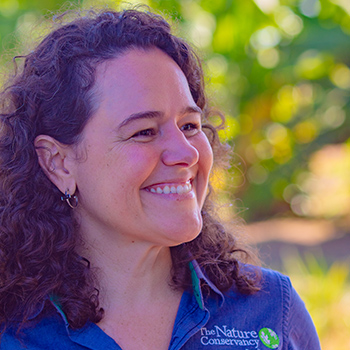
Building Climate Resilience Helps Support Farmer Livelihoods in Brazil
November 19, 2024
As world leaders continue to discuss climate action, it’s important to recognize the role of livestock farmers in meeting the nutritional needs of a growing global population. Their commitment to adopting environmental practices is key to creating thriving food systems and economic well-being.
The Zoetis Foundation supports thriving farmer livelihoods in Brazil’s Cerrado region through grant funding to The Nature Conservancy (TNC). The program provides training to farmers, agricultural specialists and veterinary professionals to help farmers increase productivity by restoring pastures and managing drought resilience — all while conserving natural resources.

"Farmers in the region face several significant challenges in adopting sustainable practices, the most prominent being the lack of financial resources. Following a severe drought that impacted production, many ranchers are struggling with reduced income and have limited capital to make the necessary investments, even modest ones," said Bianca Bley Cherem, The Nature Conservancy’s Coordinator of Regenerative Agriculture and Livestock Projects in Cerrado. “Many producers are also recognizing the importance of environmental conservation, which helps improve both water and soil quality.”
It’s important to care for the soil to support healthy livestock, so the program trains participants in crop rotation techniques that strengthen pastureland. Participants also learn soil biology and new methods to promote healthy soil, such as adding minerals and increasing nutrient levels. In turn, these methods can enhance livestock health and help boost immediate economic returns while strengthening long-term financial stability.

“Water management is a significant challenge, as dry periods are becoming increasingly prolonged. Another challenge is pasture management and how we, as producers, can adapt to these extended droughts, especially regarding animal feeding. We are receiving technical support from TNC to address these issues,” said Érika Kamogawa, a producer from NK Farm, in the city of Barra do Garças, Mato Grosso.
Healthy pastureland supports farmers’ resilience during droughts by allowing farmers to store excess pasture growth from the wet season to be used in drier periods. Through pasture restoration, farmers can increase productivity on smaller plots, supporting larger herd sizes without expanding land use. This can also promote the conservation of native ecosystems; for example, in the Cerrado region, in accordance with Brazilian law1, at least 20% of farmland must be native vegetation to preserve biodiversity.
“Getting specialized knowledge to small farmers in Brazil is a challenge. We welcome TNC’s contribution – in part through the Zoetis Foundation’s grant – in creating a culture of productivity with sustainability. This can be scaled to other farms, making a significant impact in animal health and productivity which can positively impact farmers’ livelihoods,” said Luis Xavier Rojas, General Manager for Zoetis Brazil.
According to Bley Cherem, the results are already visible, with many producers reporting significant improvements in productivity and better adaptation during the dry season.
"The support we’ve received has been extremely helpful, particularly in the technical aspects. For instance, in pasture management, pasture division, and soil analysis, we can determine exactly what needs to be applied to the soil. By understanding the specific conditions of my property, I can better plan and implement improvements to preserve pasture areas, optimize their use, and, consequently, achieve a higher financial return,” said Kamogawa.
By prioritizing the outlined practices, livestock farmers can enhance their productivity while simultaneously addressing climate challenges. Supporting farmer livelihoods is essential for ensuring food security and fostering resilient rural communities that can thrive in a dynamic agricultural landscape. This approach can help cultivate economic growth and sustainability for future generations.
1 Brazilian Forest Code (Law 12.651/2012). (2012). Lei de Proteção da Vegetação Nativa. Brasília: Presidência da República. Available at: http://www.planalto.gov.br/ccivil_03/_ato2011-2014/2012/lei/l12651.htm